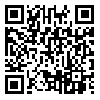Volume 6, Issue 1 (4-2018)
jmsthums 2018, 6(1): 55-61 |
Back to browse issues page
Download citation:
BibTeX | RIS | EndNote | Medlars | ProCite | Reference Manager | RefWorks
Send citation to:



BibTeX | RIS | EndNote | Medlars | ProCite | Reference Manager | RefWorks
Send citation to:
N P, M A, Z Z. The study of related factors with self-care and self-efficacy in heart failure patients. jmsthums 2018; 6 (1) :55-61
URL: http://jms.thums.ac.ir/article-1-499-en.html
URL: http://jms.thums.ac.ir/article-1-499-en.html
1- Department of Health Education and Health Promotion, School of Health, Mashhad University of Medical Science, Mashhad, Iran
2- Department of Public Health, Torbat Heydariyeh University of Medical Sciences, Torbat Heydariyeh, Iran
3- Department of Public Health, School of Health, Torbat Heydariyeh University of Medical Sciences, Torbat Heydariyeh, Iran
2- Department of Public Health, Torbat Heydariyeh University of Medical Sciences, Torbat Heydariyeh, Iran
3- Department of Public Health, School of Health, Torbat Heydariyeh University of Medical Sciences, Torbat Heydariyeh, Iran
Abstract: (6967 Views)
Background & Aim: Heart failure is a chronic disease that requires self-care behaviors until the end of life. Therefore, identifying these behaviors and encouraging the patient to participate and have the responsibility for doing them rightly, will lead to control of the disease complications. This study is designed to investigate related factors with self-care and self-efficacy in patients with heart failure.
Methods: This is a cross-sectional descriptive-analytic study that was done in Shahid Modarres hospital in Kashmar in 2016. Data collection was conducted through an interview using three-part questioner: demographic information, self-efficacy and self-care in patients with heart failure. Multiple linear regression was used to examine the factors affected on self-efficacy and self-care. Data analysis was done in 95% confidence level using SPSS version 16.
Results: The mean of age was 57.83±8.56. Mean score of self-efficacy and self-care was 16.35±8.24 and 31.11± 8.21, respectively. The results show age increasing and being a smoker, had negative relationship and higher education and being urban had positive effect on self-care and self-efficacy (P<0.0001). Also, there was a significant direct relationship between self-care and self-efficacy (r=0.86, P<0.0001).
Conclusion: Considering that patients did not have high self-efficacy in performing their self-care behaviors and poorly performed, it is recommended that the factors affecting self-efficacy and self-care in the examined patients are further investigated and measures are taken to deal with these factors.
Methods: This is a cross-sectional descriptive-analytic study that was done in Shahid Modarres hospital in Kashmar in 2016. Data collection was conducted through an interview using three-part questioner: demographic information, self-efficacy and self-care in patients with heart failure. Multiple linear regression was used to examine the factors affected on self-efficacy and self-care. Data analysis was done in 95% confidence level using SPSS version 16.
Results: The mean of age was 57.83±8.56. Mean score of self-efficacy and self-care was 16.35±8.24 and 31.11± 8.21, respectively. The results show age increasing and being a smoker, had negative relationship and higher education and being urban had positive effect on self-care and self-efficacy (P<0.0001). Also, there was a significant direct relationship between self-care and self-efficacy (r=0.86, P<0.0001).
Conclusion: Considering that patients did not have high self-efficacy in performing their self-care behaviors and poorly performed, it is recommended that the factors affecting self-efficacy and self-care in the examined patients are further investigated and measures are taken to deal with these factors.
Type of Study: Research |
Subject:
General
Received: 2018/07/8 | Accepted: 2018/07/23 | Published: 2018/07/23
Received: 2018/07/8 | Accepted: 2018/07/23 | Published: 2018/07/23
Send email to the article author
| Rights and permissions | |
 | This work is licensed under a Creative Commons Attribution-NonCommercial 4.0 International License. |





